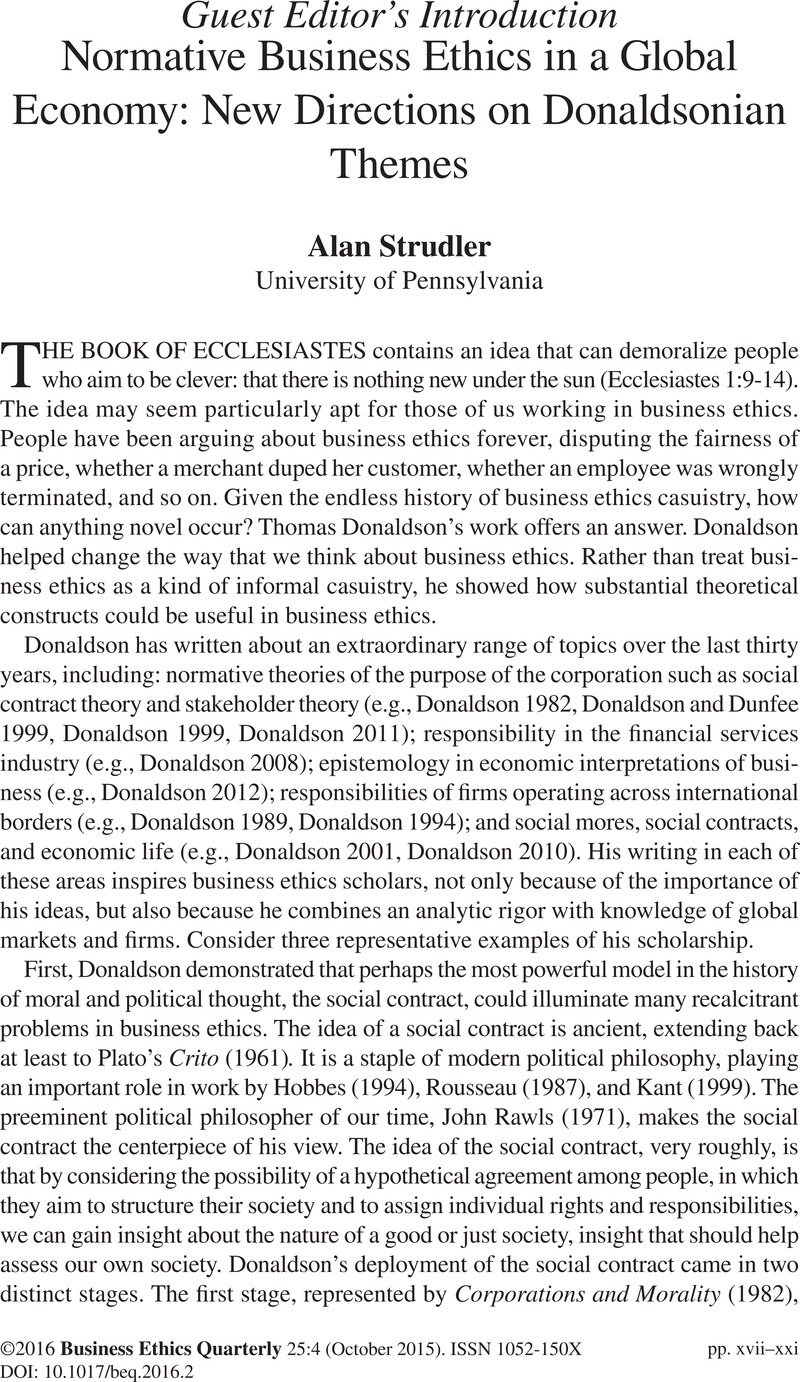Crossref Citations
This article has been cited by the following publications. This list is generated based on data provided by Crossref.
Donaldson, Thomas
2017.
Donaldsonian Themes: A Commentary.
Business Ethics Quarterly,
Vol. 27,
Issue. 1,
p.
125.
Levine, Livia
2019.
Digital Trust and Cooperation with an Integrative Digital Social Contract.
Journal of Business Ethics,
Vol. 160,
Issue. 2,
p.
393.



